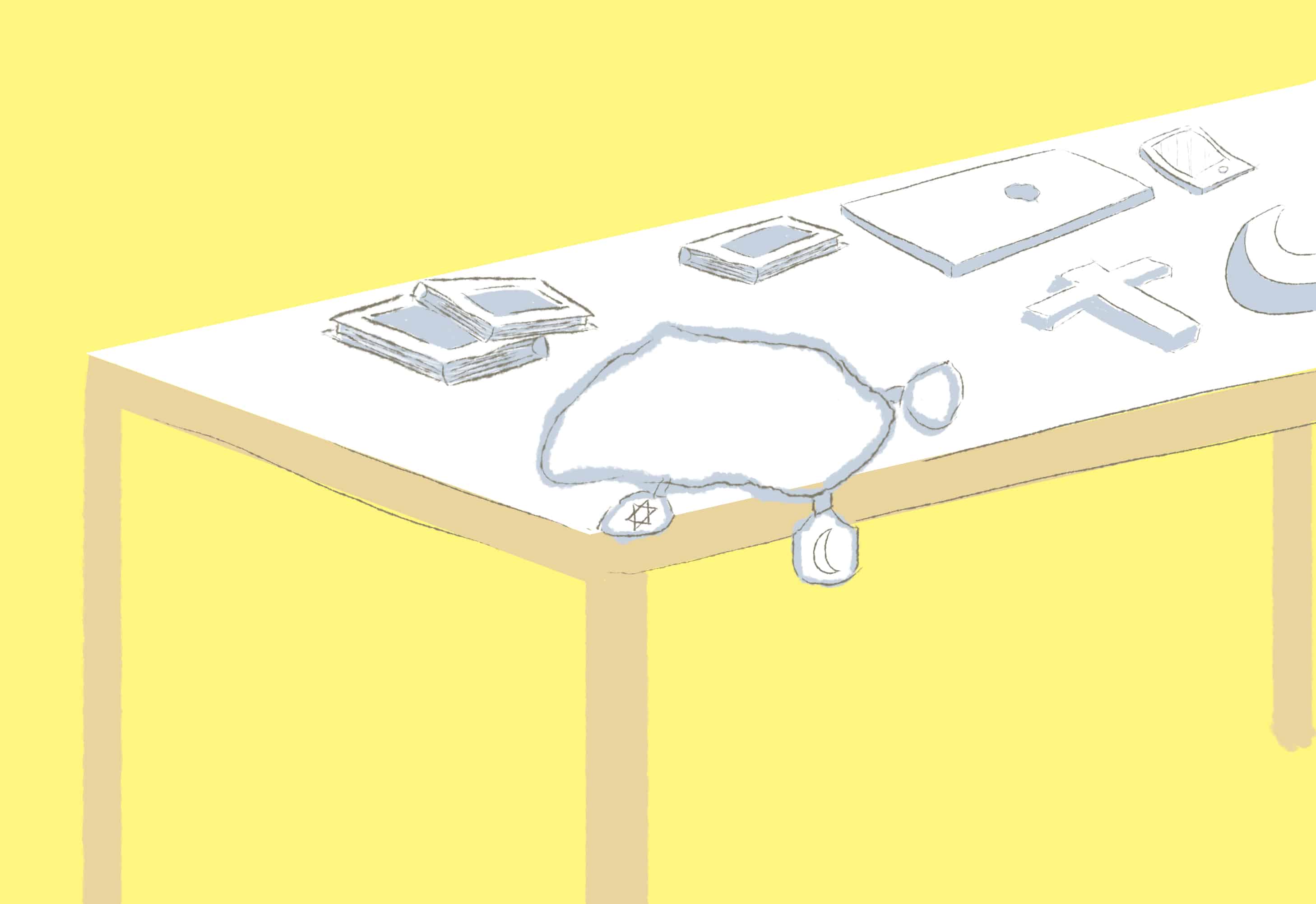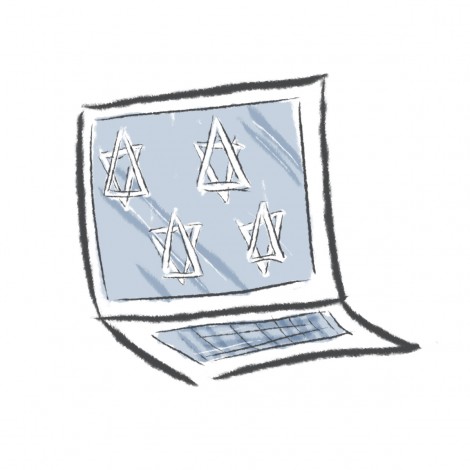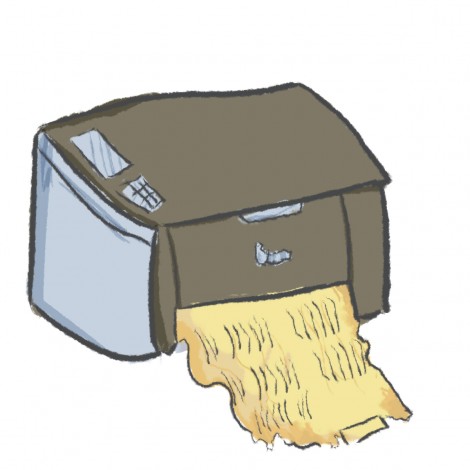Crises of identity
In the most recent poll taken on the subject, 22.8 per cent of American citizens identified themselves as ‘unaffiliated’ with a particular religious denomination. Indeed, the largest religious minority in the US is now ‘atheist/agnostic.’ This increasingly indelible feature of the North American social and ideological landscape is a testament to the corrective and elucidating force of secularization.
I firmly believe the abandonment of religious piety and superstition to be a prerequisite to the establishment of a progressive society. Yet, this enormous transition in societal thinking has confronted me with a crisis of identity, as I’m sure it has countless other young people across the West.
An attitude of incredulity towards faith is certainly one of the defining characteristics of the millennial generation. We, more so than any other previous generation, reject the precepts of organized religion in favour of a purpose and path wholly of our own conception. But this breaking away from established constructs of thought can be a superbly disconcerting venture, leaving many of us bereft of some central component of our sense of self.
Reconciling these two essential impulses — that towards total secularism, and that towards an identification with the ways of one’s people — has emerged as a crucial consideration in the making of a modern identity. Many of us now search for a way to connect with our religious, cultural, and ethnic backgrounds free of deism and constraints motivated by articles of faith.
My own experience with this proverbial balancing act has been strained, and at times, a painful one. I am of Jewish descent; intertwined with the challenges of secular religious identification are the ramifications of anti-Semitism and the constant feeling that my ethnicity is under threat. This sense of impending cultural eradication drives me all the more strongly toward an avowed Jewishness.
The great chronicler of Jewish strife, Elie Wiesel, once said of observing a Jewish way of life: “I refuse to be the last in a line going back very far in my memory and that of my people.” His sentiment carries the resoluteness of a man committed to keep alive the threatened traditions of his people. My own practice of a Jewish existence is also deeply rooted in this idea.
I know that my people are not alone in the way of persecution. Muslims, Christians, Baha’is, practitioners of Falun Gong, and so many others are, every day, victims of oppression. Therefore, all members of oppressed communities can understand this feeling on some level.
[pullquote-features]“I refuse to be the last in a line going back very far in my memory and that of my people.”[/pullquote-features]
A quasi-Jewish life
I grew up in a fairly secular household. My father is from a Lutheran family, thoroughly Nova Scotian on one side, and of German origin on the other. My mother is a Jew of Russian/Ukrainian/Polish descent — her paternal great grandparents fled from an area outside of what today is probably Kiev, in the hopes of establishing themselves in the urban centres of Canada, which at the time were only slightly more tolerant.
As did most Ashkenazi Jews in Eastern Europe at the time, my family faced near constant persecution from the Christian majority. Their settlement in Canada was successful, and after a couple of generations of mob-affiliated activity, they achieved a level of genuine prosperity.
The story of my mother’s maternal lineage is not quite so heartwarming. Her mother’s family, also Jewish, is originally from Poland. Only some of my kin on this side managed to escape before Hitler decided to invade in 1939, and those members of my family, free and alive in the West are lucky to be so. My ancestors who remained trapped, just like so many of their neighbours and friends, were rounded up in the ghettos of Warsaw, torn from their children, and tortured savagely until finally being erased from the Earth, stripped of their dignity and potential lineage.
My mother has always been proud to come from people so tenaciously strong that they survived a genocide — people who, through sheer force of will and intelligence thrived in a Canadian world completely foreign to them, doing business with people who spoke a language entirely unfamiliar. She, too, was raised in a primarily secular household, celebrating only high holidays and the occasional Shabbat dinner. In her thirties she experienced what I would call a reawakening, and decided to make the pilgrimage to Israel. She brought back with her a new sense of cultural and ethnic appreciation, and thus began my introduction to all those aspects of my Jewish identity not made available by a mere annual Rosh Hashanah get together.
I learned my Hebrew name. I learned the history of Israel, and of the great David and Solomon. I learned that I come from an ethnic group that has survived countless attempts at total eradication. Amidst all of this learning, though, remained the inculcation of my upbringing’s secularism. I couldn’t help but feel that this newfound Judaism was, at its very core, absurd. I have been my entire life an atheist, and thus naturally incredulous of religion. And so by the time I was training to become a Bar Mitzvah, I was truly in the throes of an existential dilemma: what kind of Jew was I going to be, if one at all?
[pullquote-default]by the time I was training to become a Bar Mitzvah, I was truly in the throes of an existential dilemma: what kind of Jew was I going to be, if one at all?[/pullquote-default]
My apathy towards this upcoming rite of passage was palpable, and it became pretty clear that the atheist in me — the rationalist and humanist in me — was triumphing over this budding Jew. I did become a Bar Mitzvah, but I very quickly disowned the pride in my heritage I had begun to feel in favour of a life of disbelief.
It made it easier that my mother’s infatuation with our Jewishness turned out to be a bit of a phase. The Shabbat dinners became fewer and further in between, and discussions of religious or ethnic significance slowly ceased to occur at all. I must add for my mother’s sake that she too still grapples with the complexity of her own Jewish identity; in the last couple years, she has reentered a period of immersion in her Jewishness.
It wasn’t until this year that I again began to take an interest in my family’s past. Sadly, it took my Bubbi’s passing to ultimately reinvigorate my connection to my roots and inquiry into the conditions facing my people in the contemporary world. It was actually the unveiling of my Bubbi’s grave, a full year after her death, that brought me back into the fold. The rabbi that led the service, the same woman that led my Bubbi’s funeral service, and in fact the rabbi from the synagogue of which I’ve been a member since I was 10 suggested that my mother and I attend a service the week following the unveiling. We did, and it was incredibly moving.
I left the synagogue that day and, for the first time, watched Schindler’s List. The haunting images of the film, combined with a remembrance of my recently departed Bubbi and a particularly spellbinding rabbinic sermon, ignited in me the same reawakening I imagine my mother experienced upon visiting our ancestral homeland.
Secularism, tradition, and persecution
It is the inclusion of this burgeoning facet of myself in my identity I am attempting to litigate in the context of a necessarily secularizing world. Is there any place for religious sentiment and ethnic allegiance in the twenty-first century? Do I, as a Jew, have an obligation to carry on the traditions of my people, despite my inherent atheism?
Knowing what I do now, I would answer both of these questions in the affirmative. For the path of inquiry on which the passing of my Bubbi put me has alerted me to the grievous threats facing not only my people and the survival of our culture and traditions, but many other oppressed and persecuted minorities and their customs and ways of life.
I believe, now, that in some instances it takes the pain of persecution, the threatened existence of one’s very genealogy to inspire a true ethnic pride. No two struggles are identical, but I see in the dashiki-adorning, slave-name-disowning Black Americans of the 1960s, the same communal rekindling under the pressure of an oppressive force.
[pullquote-default]Do I, as a Jew, have an obligation to carry on the traditions of my people, despite my inherent atheism?[/pullquote-default]
It is instinctual to defend that from which we come when others try to take it away. And though many deny it, that is what has always happened, and continues to happen today to the world’s Jewish population. While certain stereotypes indicate that we have prospered in the West, anti-Semitism exists today as surely as it ever has. And having realized this, all of my experiences with prejudice became undeniably clear.
Though jokingly, many of my peers from parts of the world unaccustomed to the presence of Jews, or steeped in virulent anti-Semitism, refer to me simply as ‘Jew’. As you can imagine, many other derogatory ethnic epithets accompany this odd moniker. On a number of occasions, I’ve had the misfortune to suffer through a conversation about the ‘power hungry Jew’ — a figure who, perhaps once persecuted, now controls the banks and the economy and the media, and bends the world to his will, leaving nothing for anyone else. Every time I hear this story, it is framed as though the Jews have stolen these institutions from the otherwise good people of the world that were doing just fine before we came along to take everything.
Regrettably, not even at U of T have I found haven from this barely veiled Jew-hatred. While searching for the bathroom in Bahen, my partner, who is also Jewish, had the misfortune of overhearing a fellow student finish a prayer with aggressive words regarding ‘Jewish filth.’ Friends of mine, active in the Jewish community at McGill and staunchly in support of the existence and protection of a Jewish homeland that coexists peacefully with its Palestinian neighbour, have been met with much harsher treatment.
This is just evidence from my own life. The world today is teeming with anti-Jewish sentiment. Many of the neo-fascist parties arising in Europe target Jews, along with a slew of other oppressed minorities, with intensely hateful rhetoric. The continent is witnessing a Jewish exodus and scourge of openly expressed hatred towards the Jewish population not seen since the Holocaust. Once more, the home we’ve made for ourselves — the place where we’ve become situated and assimilated, solidified ourselves as an important part of the local economy, and learned local customs and languages — is rejecting us.
Many nations in the Middle East have adopted nearly official stances on the evil of the world’s Jewry, especially Israel’s. To understand this reality, one need only look to the policies enacted by the Saudi government in the past half-century, or the numerous statements made by Iran’s Supreme Leader, or the forced diaspora of hundreds of thousands of Jews from a long list of countries in the region.
This unsurprising and deeply troubling anti-Semitism has long existed in much of Europe, and the Arab world. What frightens me most — likely because I am a student at a Western university — is the emerging ubiquity of anti-Jewish and anti-Zionist sentiment on North American college campuses, and the frightening silence with which it is accepted.
I realize that Jewishness is not synonymous with Zionism, but a desire for a homeland in which one can live freely without fear of persecution is common and understandable. Consequently, it is arguable that to heavily contest the most basic tenets of Zionism is to make a political statement against the Jewish people as a whole.
It seems almost fashionable nowadays to align oneself with any movement or school of thought that has at the centre of its doctrine of oppression the inherent vice of the Jewish state. The most prominent of these associations is the coalition of students united behind a free Palestine. I would count myself amongst their ranks, as I too believe unequivocally that the Palestinian people have been wronged and deserve a land to call their own. But in many ways this movement has devolved into a witch-hunt calling for the dissolution of the Jewish aggressor state, and the incrimination of Jewish Zionists.
Criticism directed at the current government of Israel is welcome, as is any criticism directed at a government accused of breaking international law or committing crimes against humanity. What often follows from this, however, is a conflation of the actions of a political party with the absence of legitimacy and necessity of a Jewish homeland.
Egregious injustices have been, and continue to be committed against the Palestinian people, and these crimes should not only be condemned in the strongest of terms, but remedied as soon as is reasonably possible. Yet it seems that we have collectively forgotten why a Jewish homeland was sought out in the first place.
What has been lost in this most recent surge of political argumentation on campuses is a sensitivity to the plight of my mother’s family, and all those families just like them. In our search for an axiomatic morality, we as college students have created a bipolar terrain of victimhood and criminality — where the criminals are prejudicially cast as all those who in any terms defend the survival of their home, and the victims are canonized for their questing after the same. It pains me greatly to witness a return to the simplistic and prejudicial groupthink that once plagued North American campuses; it reminds me of the same thinking that still plagues much of Europe and the Arab world today.
Roots of identity
It is this sorry state of affairs that complicates for me a resolution to the competing obligations of cultural survival and modernity. It is my firm belief that the world needs to move away from its reliance on organized faith. As an atheist and a humanist, I see religion, more than anything, as a source of division and pain. And yet, I feel it my duty to continue the traditions of my family both living and lost.
[pullquote-features]150 generations to the temple of Solomon, 130 generations to the captivity of Babylon, 10 generations to the shtetls of Eastern Europe, and four generations to the gas chambers of Auschwitz.[/pullquote-features]
The threat of extinction has a way of populating the mind with ideas otherwise unpalatable. I’ve been left wondering if I necessarily need to engage in the religious practices of my people to remain true to my roots. I’ve been left wondering if the modern, secular individual can keep alive the fabric of his or her culture without further entrenching our society in the intellectual rut of religion. I’ve been left wondering if there really does exist the ‘secular Jew,’ or if it’s an invention of convenience to allow those of us too opposed to the archaism of religion to still feel a part of our cultural background.
What confuses this internal debate all the more is the duality of Jewishness: it is both an ethnic identity and a religious one. No matter my level of participation in the rituals of my faith, I will always be a Jew, and this I think is a peculiarity unique to Judaism. I could conceivably even leave the faith, but if analyzed my genes would identify me a Russian/Ukrainian/Polish Ashkenazim, with roots that stretch back 150 generations to the temple of Solomon, 130 generations to the captivity of Babylon, 10 generations to the shtetls of Eastern Europe, and four generations to the gas chambers of Auschwitz.
Ultimately the balance between secular modernity and religious tradition is one that must be struck by each individual weighing it for him or herself. This applies just as well to people of different ethnic and religious backgrounds, as it does to people within the Jewish community. And though this process of self reflection can at times be a disorienting one, I would urge all committed to it not to lose sight of where you come from. You may determine that the traditions and bodies of thought of your people have no place in who you are, but should you ever feel lost, or disillusioned, or without an anchor, those foundations of cultural construction will always be there for your edification, and need be, your realignment.
Sean Goldman-Hunt is a fourth-year student in Chemical Engineering, Environmental Engineering, and Sustainable Energy Development.
Editor’s Note: This article has been updated from a previous version.




